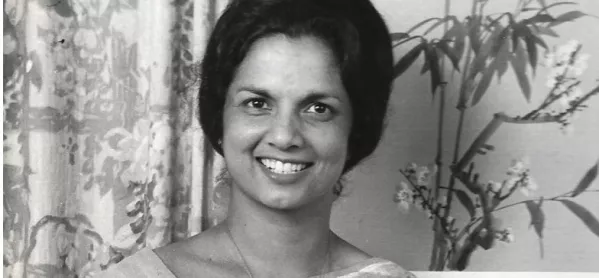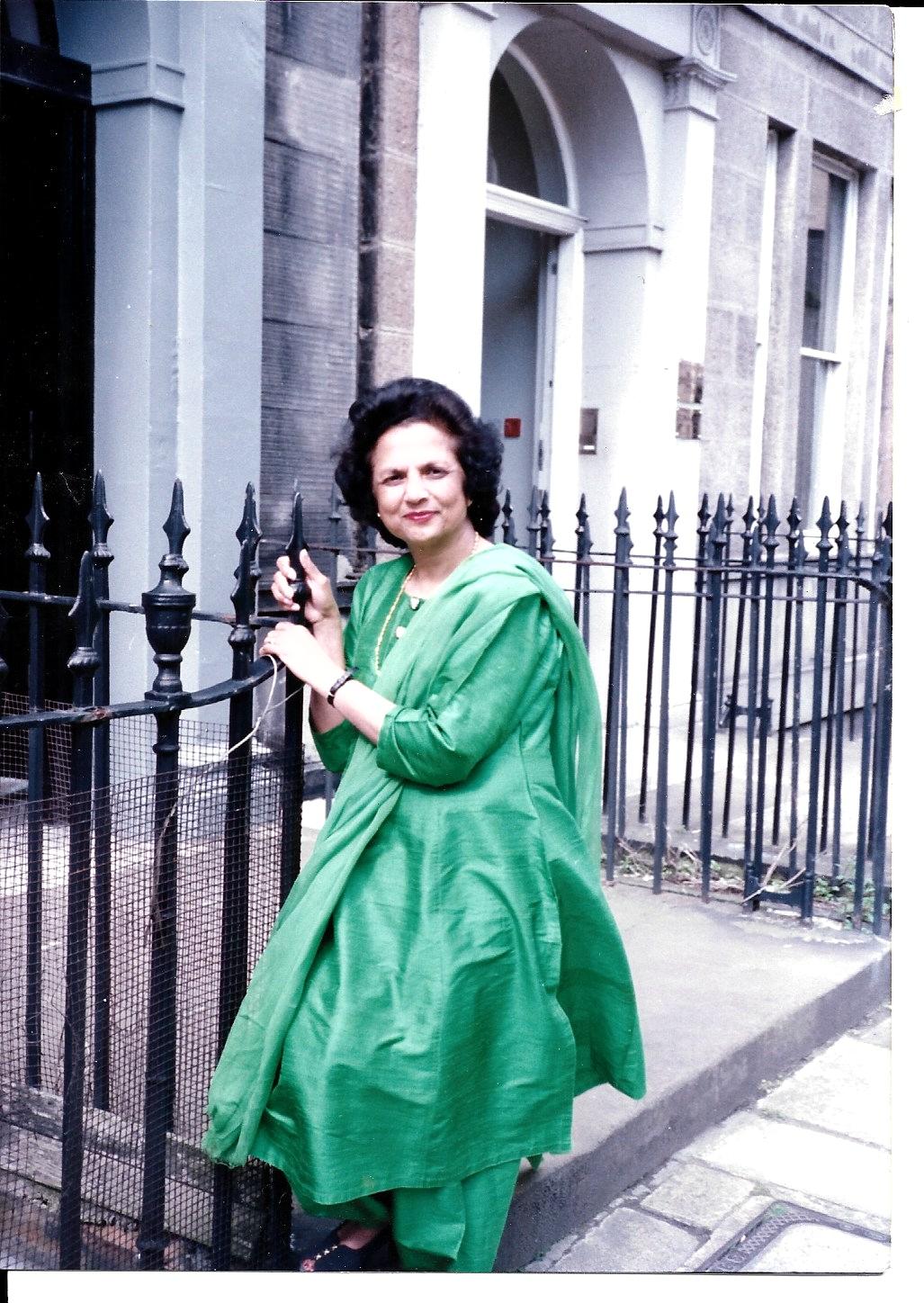Pioneering teacher inspires new equality award

An equality, diversity and anti-discrimination award has been launched in honour of pioneering teacher and campaigner Saroj Lal.
The General Teaching Council for Scotland (GTCS) today opened nominations for a new award, the Saroj Lal Award for a Pioneering Spirit in Equality and Diversity.
Nominations are invited from headteachers and senior leaders within local authorities and the independent school sector, on behalf of any schoolteacher who has “gone above and beyond in their efforts to fight for equality and diversity”.
Long read: One small step for Mum...One giant leap for equality
Report: How to improve diversity and tackle racism in schools
Statistics: Proportion of BAME teachers barely changes in a decade
A pupil’s experience: Scottish education can do better for BAME pupils
Archive interview: Anti-racism educator Jane Elliott
LISTEN: Teachers ‘too scared’ to talk about racism
Saroj Lal was among the earliest Asian primary schoolteachers in Scotland when she moved from India in the 1960s. Her background as a teacher was central to her later work in multiculturalism and antiracist education, which included work with Lothian and Borders Police to define the nature of racial attacks and encourage the monitoring of racist bullying in schools. She also became the first Asian woman in Scotland to be appointed as a justice of the peace.
She died last year and her son, Vineet Lal, later paid tribute to her achievements in an essay published in Tes Scotland.
 Dr Pauline Stephen, GTCS chief executive and registrar, said: “The Saroj Lal Award for a Pioneering Spirit in Equality and Diversity allows GTC Scotland to honour Saroj’s legacy by celebrating the work of other pioneering teachers.
Dr Pauline Stephen, GTCS chief executive and registrar, said: “The Saroj Lal Award for a Pioneering Spirit in Equality and Diversity allows GTC Scotland to honour Saroj’s legacy by celebrating the work of other pioneering teachers.
“The promotion of equality and diversity and professional values of social justice, trust and respect and integrity are at the core of the Professional Standards for Teachers.
“While there is much still to do in addressing equality and diversity in education - the continued lack of diversity in the teaching workforce is an example that needs to be directly tackled - this award recognises that much has been done.”
Vineet Lal, who is an award panellist, said: “My mother was a truly remarkable woman and a trailblazer in every respect, working at the forefront of multicultural and antiracist education in its early years and laying the foundations for many others to build on.
“It’s wonderful, and immensely moving, to see that her legacy will live on through this award which recognises that same pioneering spirit across the entire spectrum of equality and diversity, embracing all of the protected characteristics.
“Saroj was well ahead of her time, and far-sighted in her thinking, and I know she would have been incredibly moved by this initiative that honours her unique contribution to education in Scotland.”
Professor Rowena Arshad, University of Edinburgh chair in multicultural and antiracist education, and also an award panellist, said: “I am particularly pleased that contributions of black and minority ethnic people in Scottish education is being recognised through the Saroj Lal award. Being a pioneer in any initiative takes courage and perseverance, and Saroj Lal sustained her commitment to challenge discrimination and promote equity through teaching and learning in a time when there was far less support for tackling racism and promoting racial equality.
“It is right we continue, through this award, to affirm, recognise and commend those that continue to explicitly take equalities and anti-discrimination work forward in education.”
The GTCS award is part of a joint commemoration of the legacy of Saroj Lal with the University of Edinburgh Moray House School of Education and Sport - which has launched a scholarship to inspire BAME (black, Asian and minority-ethnic) applicants to enter the teaching profession - and the City of Edinburgh Council, which is creating an award that “shines a light on the impact of prejudice and the potential to use art for positive change”.
Nominations are now open with a deadline of 1 June. For the nomination form, and to find out more about the award on the GTCS website, click here.
Saroj Lal’s background and experience as a schoolteacher at South Morningside Primary were central to her later work in multiculturalism and antiracist education. She would challenge perceptions throughout her career at the Young Women’s Christian Association (YWCA) and Lothian Race Equality Council, fighting for equal representation of minority-ethnic communities in the classroom, children’s literature and the media. She championed the black and minority-ethnic cause, setting up Edinburgh’s first dedicated ethnic library, developing minority arts and expanding mother tongue teaching citywide.
Education and women’s rights remained a priority: she encouraged young women and girls to pursue higher education by creating the Asian Cultural Girls’ Club at Edinburgh’s Drummond Community High School and the “continuation course” - designed to encourage Asian girls to continue with their education - at Telford College, also in Edinburgh. She also broke new ground with Lothian and Borders Police, defining the nature of racial attacks and encouraging the monitoring of racist bullying in schools. She became the first Asian woman in Scotland to be appointed as a justice of the peace.
An interview in which Professor Arshad discusses diversity, BAME communities and racial equality in the Scottish education system can be watched here.
Professional learning and support on equality and diversity can be found in GTCS’s Equality and Diversity: a Guide for Teachers and in the Equality and Diversity Hub on the GTCS website, which includes two Professional Learning modules.
The GTCS Professional Standards 2021 launched in January include “a strengthened focus on equality and diversity”.
You need a Tes subscription to read this article
Subscribe now to read this article and get other subscriber-only content:
- Unlimited access to all Tes magazine content
- Exclusive subscriber-only stories
- Award-winning email newsletters
Already a subscriber? Log in
You need a subscription to read this article
Subscribe now to read this article and get other subscriber-only content, including:
- Unlimited access to all Tes magazine content
- Exclusive subscriber-only stories
- Award-winning email newsletters



